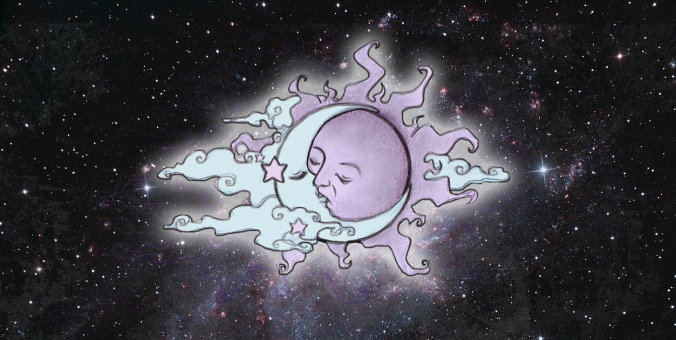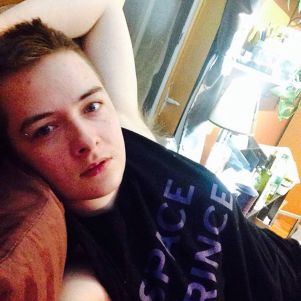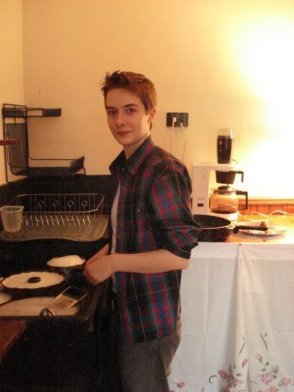When I was looking for a piece of artwork for this blog’s header, a line came to mind. I didn’t remember where it came from. It’s a beautiful line, perhaps overused, but no worse for the wear:
I have loved the stars too fondly to be fearful of the night.
It’s a gentle, joyful line about death, and I think about death a lot. More broadly, the night is the dark, liminal zone that grows up around a chronic illness this profound. I wanted to pair the lines with a sun and moon intertwined, an ancient alchemical symbol that symbolizes androgyny, the union of supposed opposites.

I was curious where the lines came from, so I looked them up. They’ve been commonly but wrongly attributed to Galileo, but come from a poem by Sarah Williams called The Old Astronomer.
I found, strangely, that the poem in its entirety reflected aspects of my situation in greater detail and lucidity than I had expected. The poem is about an old astronomer, who, facing death, instructs his younger pupil to carry on his work resolutely and without need of recognition. The pursuit of science, it’s implied, is transcendent: A Great Work that is carried on by lineages throughout the ages.
The Old Astronomer¹
Reach me down my Tycho Brahe, I would know him when we meet,
When I share my later science, sitting humbly at his feet;
He may know the law of all things, yet be ignorant of how
We are working to completion, working on from then to now.Pray remember that I leave you all my theory complete,
Lacking only certain data for your adding, as is meet,
And remember men will scorn it, ’tis original and true,
And the obloquy of newness may fall bitterly on you.But, my pupil, as my pupil you have learned the worth of scorn,
You have laughed with me at pity, we have joyed to be forlorn,
What for us are all distractions of men’s fellowship and smiles;
What for us the Goddess Pleasure with her meretricious smiles!You may tell that German College that their honor comes too late,
But they must not waste repentance on the grizzly savant’s fate.
Though my soul may set in darkness, it will rise in perfect light;
I have loved the stars too fondly to be fearful of the night.Sarah Williams
It’s a good piece to reflect on now, when I am feeling extremely ill and in a dark night-within-a-night. In these times we want to shy away from darkness and disease and disorder, and the mind attempts to shut off, to go numb, to deconstruct into anxieties. But the darkness we’re afraid of is not foreign and isn’t without beauty. In the silence beyond the body, there are stars. In the hush and quiet of a life disconnected, there is a silky dark beauty, a contemplative asceticism whose gem, yielded through years of pressure, is the diamond of pure compassion.
And for every one of us who is deeply sick with a medically unsolved disease, our lives matter. They are great sources of data and investigation. We are all scientists, recording our observations in support groups and websites, building bases of knowledge that are later tested by researchers.
Scientists collect our blood and DNA and every data point that we contribute matters. The researchers who are solving this disease have been inspired by all of us. Our suffering and our attempts to understand and quantify it contribute to a Great Work that does not yet exist in completion.
Our task, knowing this, is to collect our meaning, our sense of purpose, from the disease that has seemed to shatter it. And to fight: To fight beyond our capacity, beyond what we thought we could or who we thought we were. To be more, to get more. To contribute to the Great Work, to hope it see it finished, to prepare those after us to see it through.
We matter. We fight. And we will rise.
Further Resources
Visit MEPedia, a crowd-sourced knowledgebase about CFS-ME
Check out The Stanford Myalgic Encephalomyelitis/Chronic Fatigue Syndrome Initiative
Read the wonderful description of CFS-ME from the Open Medicine Foundation
1 The Old Astronomer abridged version appeared in Best Loved Poems of the American People, 1936.
 My name is Dylan, and I am a 30-year-old artist, writer and creator. I am living with a chronic illness called CFS-ME, or chronic fatigue syndrome/myalgic encephalomyelitis. My illness is in the lower end of the severe category. This means I am mostly bedbound and almost always housebound.
My name is Dylan, and I am a 30-year-old artist, writer and creator. I am living with a chronic illness called CFS-ME, or chronic fatigue syndrome/myalgic encephalomyelitis. My illness is in the lower end of the severe category. This means I am mostly bedbound and almost always housebound.